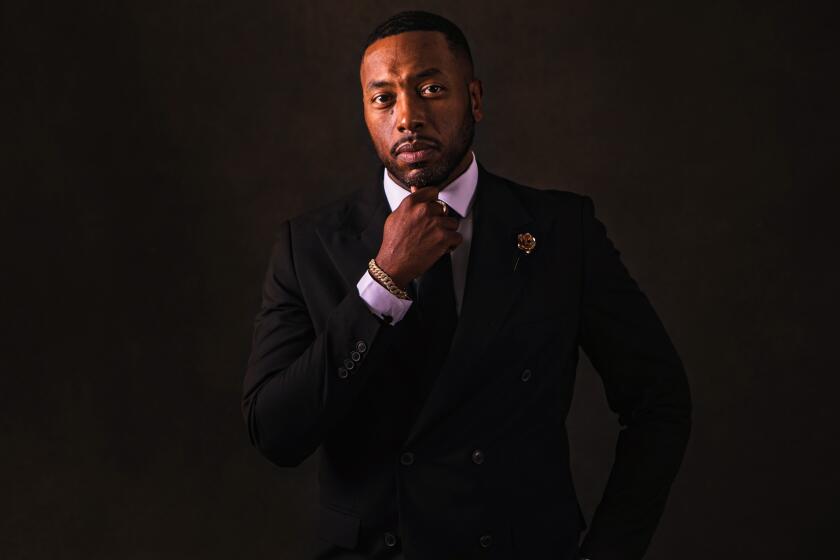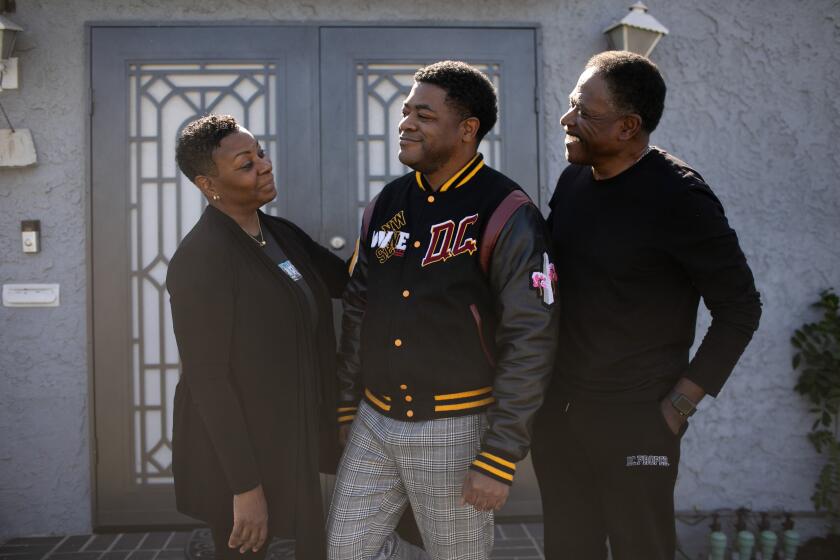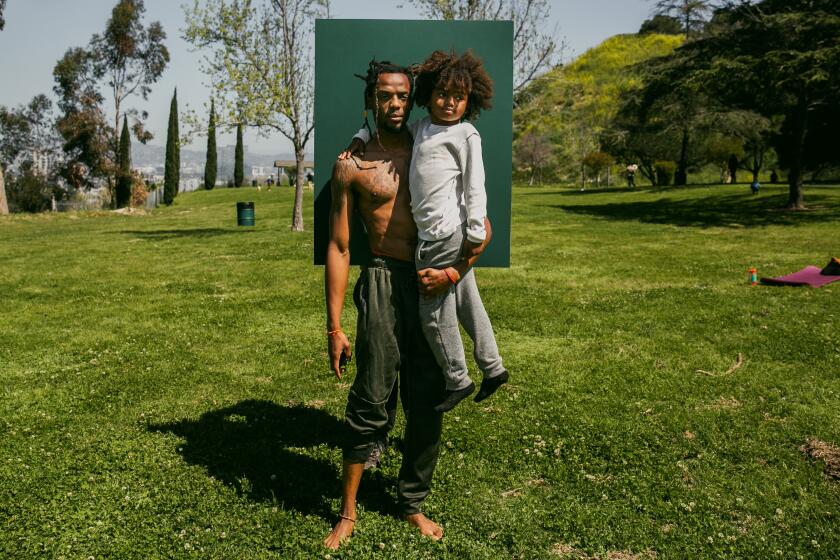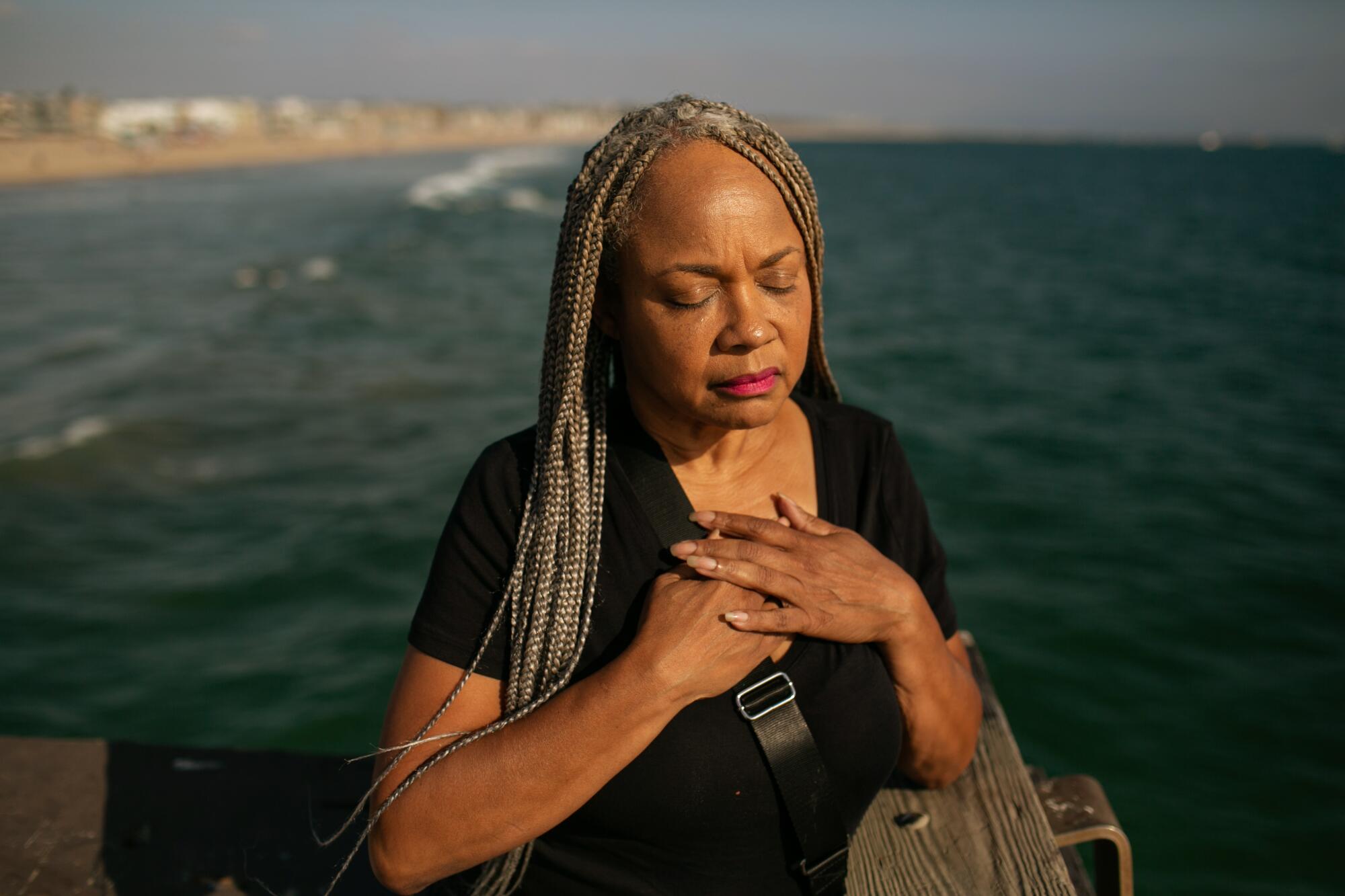
- Share via
Amid a super bloom of wildflowers and mustard plants, Deneen Vaughn takes a moment to catch her breath.
Regardless of the season, the Baldwin Hills Scenic Overlook Trail has been a lifesaver for the 58-year-old mother of three.
She recalled hiking the trail when the rolling hills were brown and devoid of life, but its impact on her well-being remains constant.
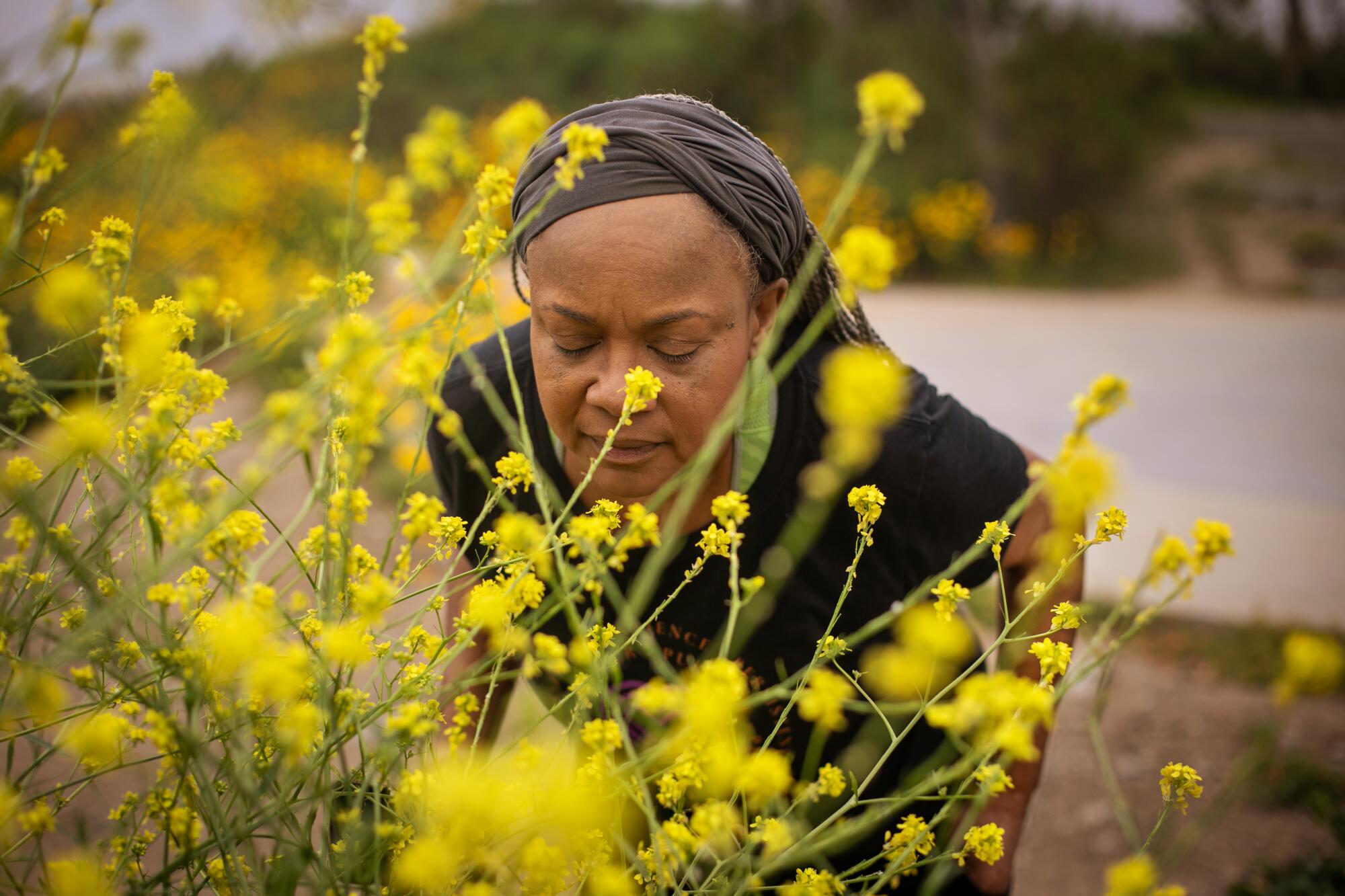
Vaughn has always found exercise to be a helpful coping mechanism for her depression and anxiety.
But focusing on her physical and mental health has a whole new meaning and purpose now.
Vaughn’s middle son, Chris, died by suicide in 2021, leaving her, her husband and their remaining two sons to figure out life after.
In the last 19 months, they’ve seen their family dynamics shift, and with Deneen Vaughn leading the charge, they’ve found a way to speak out about what, for many Black families, is the unspeakable.
“I was devastated,” Vaughn said. “Chris’ death has riveted my husband and been a huge loss to our entire family.”
Vaughn has grappled with the guilt of knowing that she had her own struggles with depression, recognized the signs in her middle son’s behaviors but couldn’t intervene in time to save him.
Vaughn and her husband always emphasized the importance of mental and physical health to their children, However, like many other Black families, they never discussed suicide.
“For Black people, there is this whole notion of ‘not in my family,’” Vaughn said.
In the Black community, a person’s suicide is often concealed, with many families choosing vague descriptions like “died of natural causes” in obituaries.
Vaughn draws a parallel between Chris’ reluctance to talk about his mental health to the stigma surrounding mental illness and suicide within the Black community.
Now, Vaughn and her family aim to change that narrative by acknowledging their experience and raising awareness.
In memory of Chris, they established the Mind and Wellness Foundation with the goal of ending the stigma surrounding mental health and suicide within communities of color.
“We were one of those families,” Vaughn said. “Now we let people know, ‘Yes — in this family.’”
Individuals who experience loss through suicide typically cycle through five to seven stages of grief: shock, denial, anger, bargaining, guilt, depression and acceptance/hope.
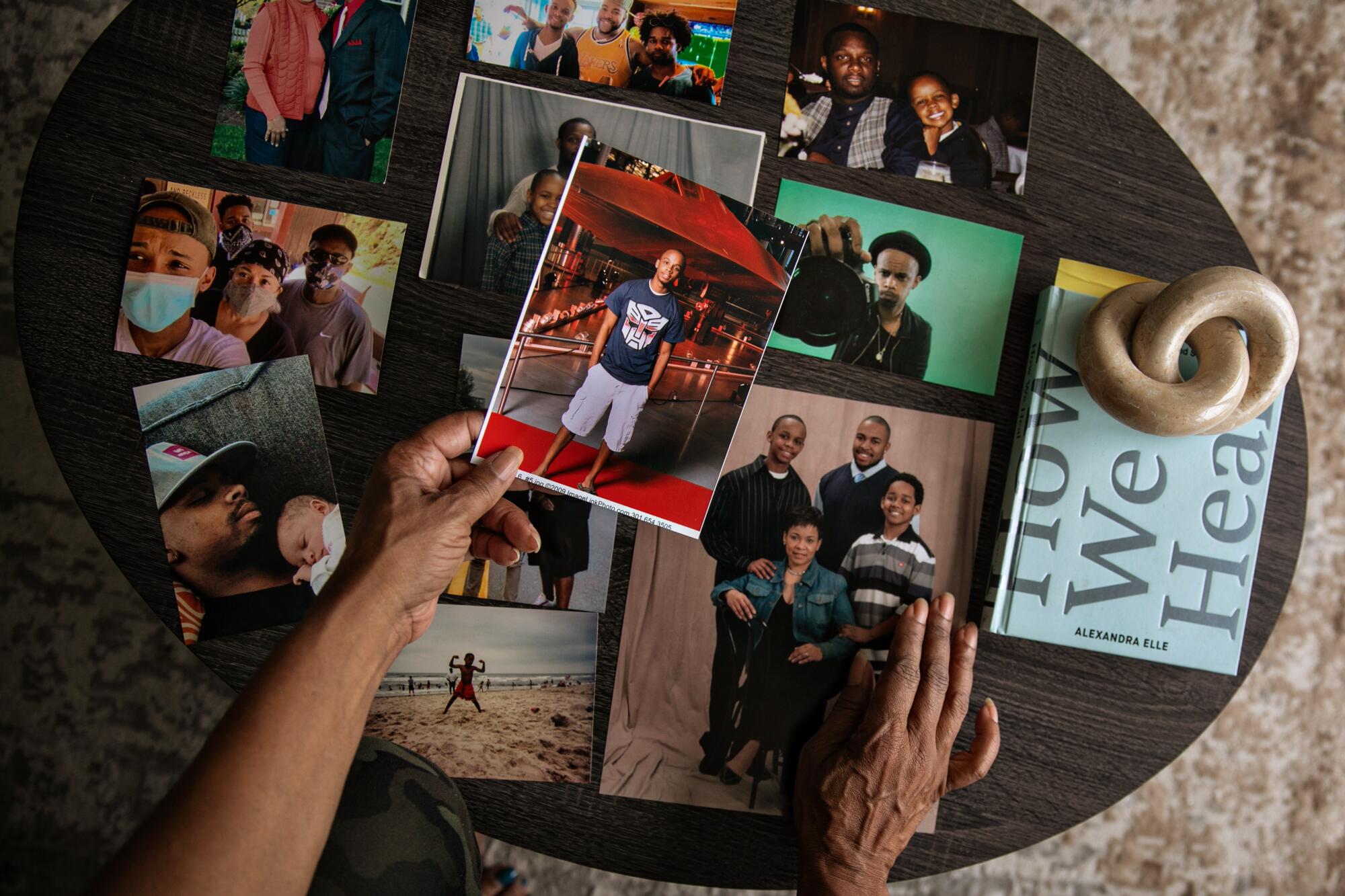
Typically, people move through these stages in a nonlinear manner, but even Vaughn is surprised by how quickly her family — still in the depths of the other stages — latched onto hope.
“We started it pretty quickly, which in retrospect is kind of bizarre to me,” said Vaughn. “There were many times I’m going, ‘Why the hell am I doing this?’”
Through discussions with her therapist, Vaughn concluded that starting the foundation was an integral part of her healing process.
It allowed her to process her emotions while remaining connected to others in need.
“We needed to be able to bring awareness to the fact that it could happen in your home, “ said Vaughn. “Even as close as our relationship was with Chris, there was just something right under the surface.”
Vaughn emphasizes the importance of raising awareness that suicide can occur within anyone’s home, even in close-knit relationships.
Deneen’s eldest son Kevin was in awe of his mother’s resilience shortly after his brother Chris’ death.
Initially worried about her well-being, Kevin said that he was not mentally prepared to dive into building the foundation when his family formed it one month after his brother’s suicide.
At that time, he was still grappling with shock and trying to comprehend the magnitude of the loss.
However, he now understands his mother’s vision and acknowledges the foundation’s vital role in the healing process of not only their family but also their community.
“I want to be able to cultivate a community where we can have an exchange of dialogue about mental health,” Kevin said. “I want to impress upon our communities of color that we truly need to normalize our mental health and break the stigma.”
The Vaughn brothers grew up seeing their mother both thrive and struggle.
In her mid-30s — when her sons were ages 2, 8 and 12 — Vaughn was diagnosed with depression and anxiety.
Looking back, she remembers realizing she was no longer the vibrant person she knew herself to be.
“One day it was just boom, and a lot of things just kind of started flooding forward and I noticed mood swings and deep sadness,” she said.
Through therapy, Vaughn recognized that her untreated past traumas contributed to her mental health struggles.
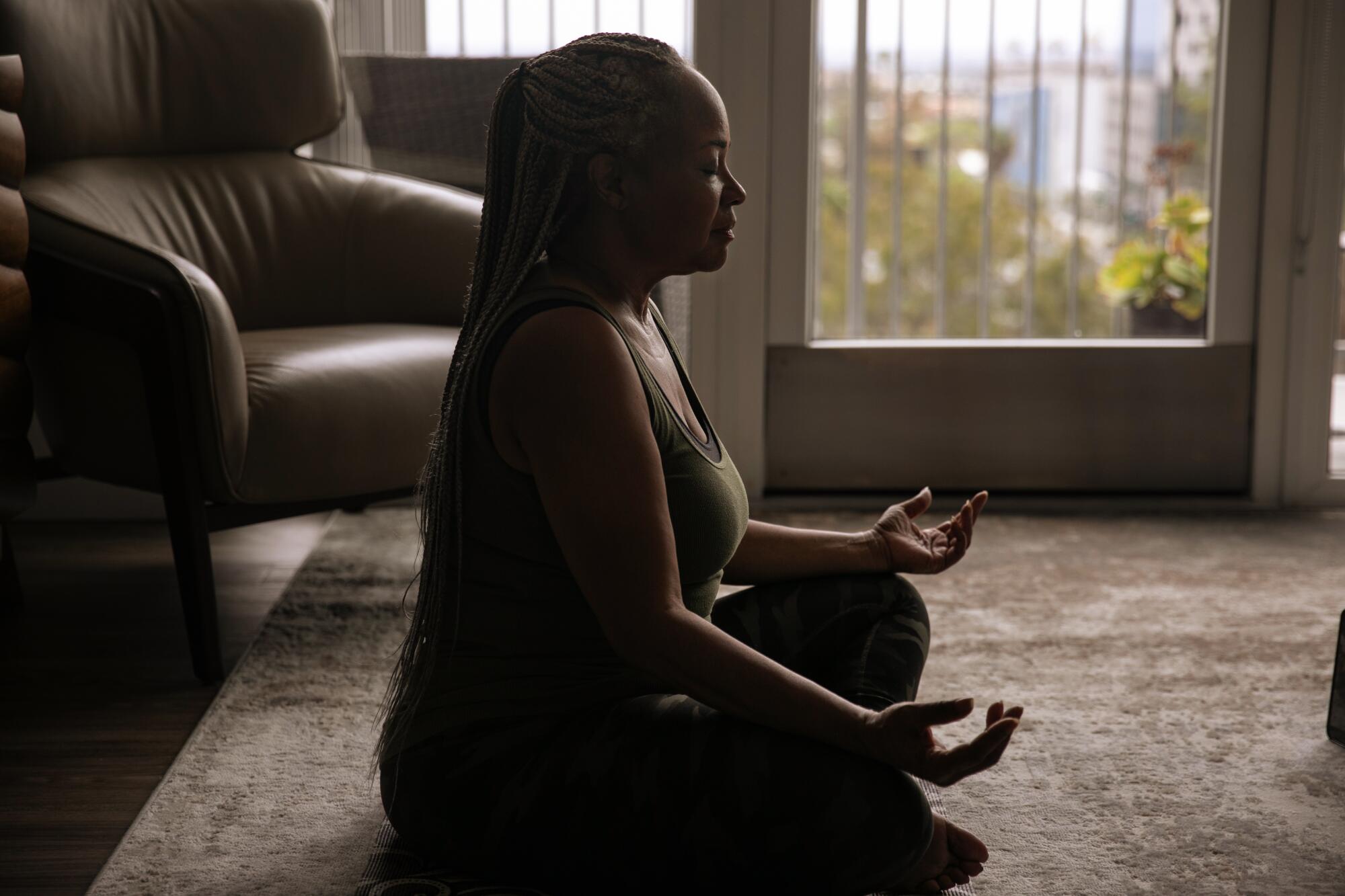
Now carrying immense sorrow following the loss of her son, she has turned to various activities like walking, hiking, reading, meditating, yoga and even boxing to confront her sadness and anger head-on.
About a month ago, she attended her first yoga class. In her living room, Vaughn practiced yoga poses in front of her laptop.
A group of about 10 grieving participants from different parts of the country, guided by a yogi in Philadelphia, have logged in to join the virtual yoga session organized by the Vaughn family’s foundation.
Releasing her yoga pose prematurely, Vaughn lets out a laugh and exclaims, “Someday I’ll be able to do it, just not today,” she said. She finds certain poses easier to hold than others.
Yoga helps when she’s feeling emotionally fatigued. On the days when she feels angry, it’s boxing.
Boxing became one of the first outlets she gravitated toward to cope with her grief.
BoxUnion, a group fitness boxing class, has provided her with a way to release some of her anger.
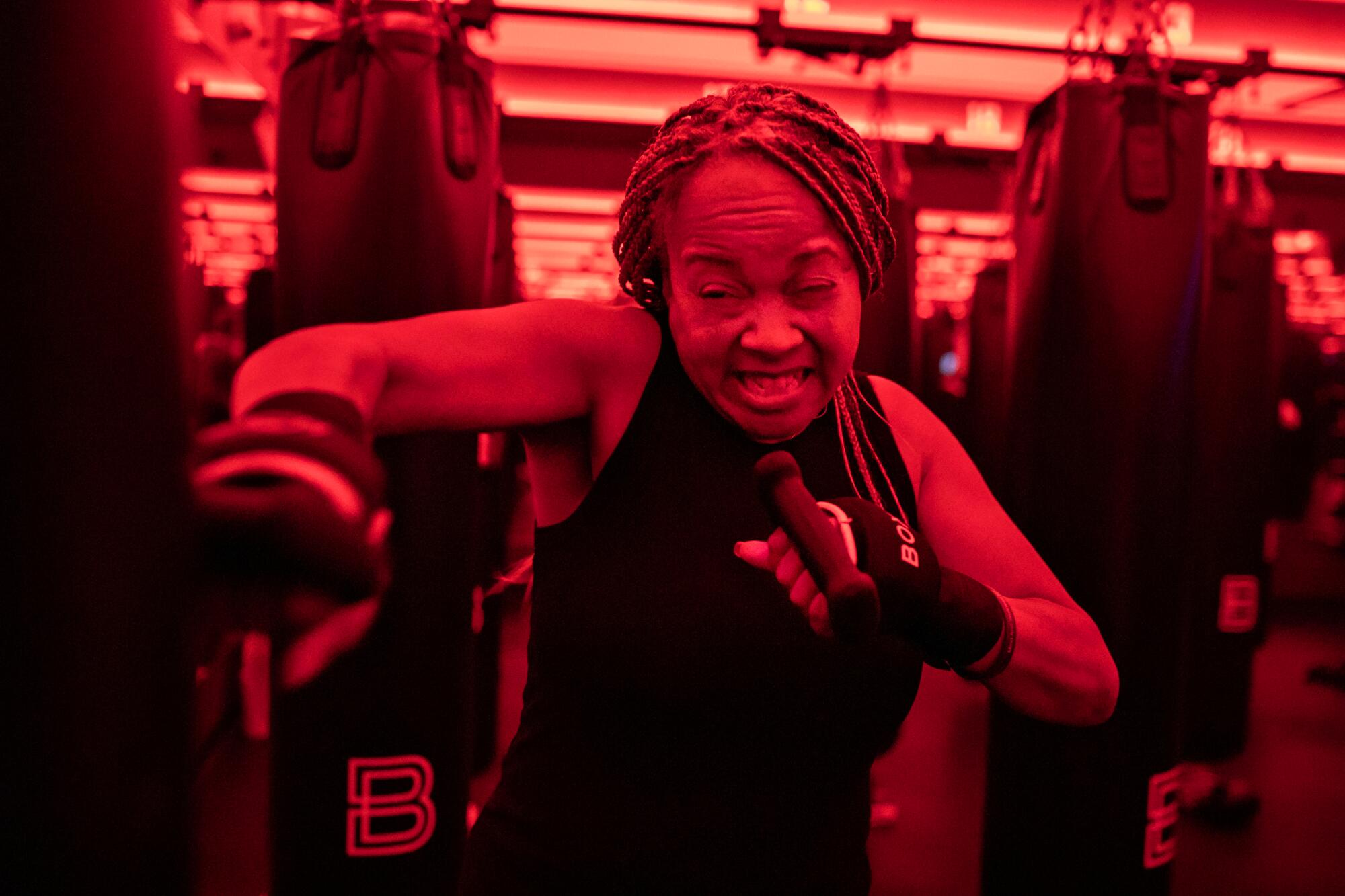
“I distinctly remember saying, ‘I want to hit something.’ I was in that mode of anger and sadness; I needed an outlet,” she explained.
Cam, Vaughn‘s youngest son, often attends boxing classes and hikes with his mother.
He’s been instrumental in encouraging his mom to try new physical activities.
Multiple members of the Vaughn family note that Cam has swiftly stepped into a role that was previously occupied by Chris.
Chris used to be the one who checked in on everyone in the family.
Vaughn credits Cam for helping her overcome self-blame. “At first, I struggled with thoughts like, ‘What did I do? What did I say? Did I miss something? How come I didn’t know?’” she said.
Since the day Chris took his own life, Cam has been by his mother’s side.
On that tragic day, Vaughn recalled Cam turning to her and saying, “Mom, you and Dad provided us with a good life. Our time together was well spent.”
Those words had a comforting effect on Vaughn and offered her the solace she desperately needed.
It’s not uncommon for siblings to step into a different role for their parents after an adult sibling dies.

The death of a child disrupts the natural order, as parents anticipate their children will outlive them, and this repositioning can strain a marriage to its breaking point.
In the bereavement community and media, there has long been a belief that the death of a child inevitably leads to divorce for the parents.
However, a survey conducted by the Compassionate Friends, a leading bereavement organization, revealed that only 16% of bereaved parents end up divorcing, debunking the age-old myth that 70% to 90% of bereaved parents split up.
“Marriage can be challenging after a loss to suicide because the death consumes your thoughts,” Vaughn‘s husband Reggie said. “It’s not that you feel differently about your spouse, but you feel different about yourself, and sometimes I don’t even know how to deal with myself.”
Many Black husbands and fathers, like Reggie, feel the pressure to prioritize taking care of others and neglect their own healing.
They place themselves on the back burner, exacerbating the situation.
Reggie admires how his wife has navigated her grief, but he acknowledges that he is facing a more difficult path in confronting his sorrow.
“Society expects Black men to be OK, as if nothing can affect us. We’re supposed to fix everything. It’s almost like we don’t have the luxury of not being OK,” Reggie said.
Deneen said she first noticed changes in Chris after he and his brother experienced a traumatic physical attack in 2015.
Recognizing signs of post-traumatic stress disorder in him in 2018, she encouraged him to seek help.
“That trauma is what makes us more susceptible to various psychiatric disorders, addiction and depression,” explained Dr. George Woods, a neuropsychiatrist and chief science officer at Crestwood Behavioral Health. “Now, we’re seeing more instances of hopelessness resulting from trauma.”
Woods said he has observed in his practice an increase in Black patients with PTSD and trauma over the last five years, and many of them express a sense of a foreshortened future.
They feel as though their lives will be cut short without a clear explanation.
Woods’ observation is backed up by data. The suicide rate among young Black Californians has doubled since 2014, according to data from the state Department of Public Health.
Woods attributes this rise in suicide rate to factors such as pandemic-related stress, poverty, exposure to violence and early life trauma within the Black community.
With Chris, his family knows the attack wasn’t the sole cause of his suicide — suicide is never as simple as one moment.
“It can be challenging when a loved one keeps their struggles hidden and puts up walls to protect themselves,” said Cam . “You can try to break those walls down, but you’ll never truly know what’s happening until things reach a breaking point.”
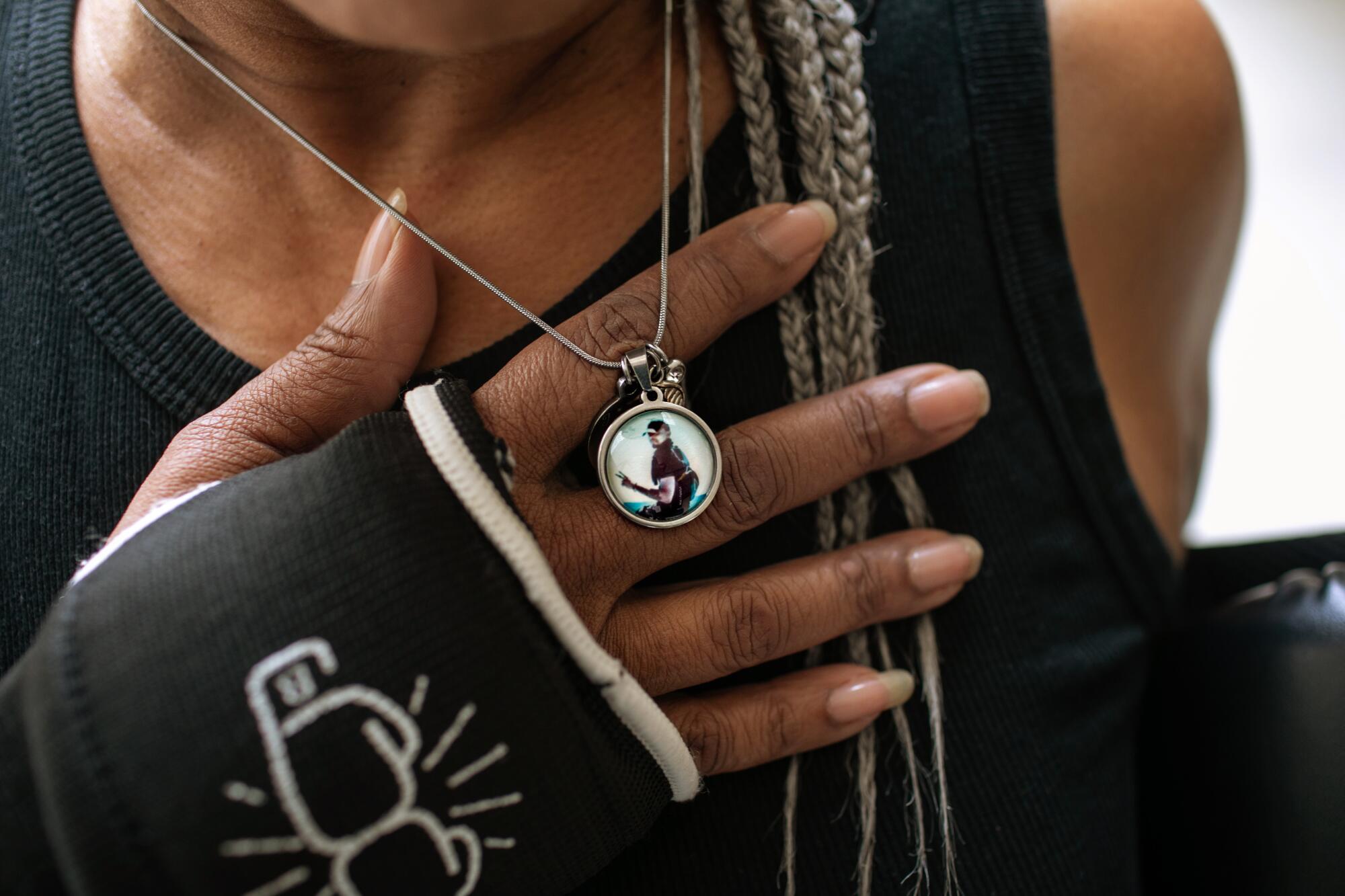
Woods cited the stigma surrounding mental health within Black communities, particularly among Black men, as a factor contributing to the elevated suicide rate.
“This stigma undermines their ability to reach out and receive that reciprocal support that allows everyone to heal,” Woods said.

And in the almost two years she’s been grieving, Vaughn has repeatedly come back to that: stigma. Even in a supportive and loving family where mental health was discussed openly, a broader culture of silence seems to have kept her middle son quiet on his darkest days.
Vaughn is grateful to her husband and sons for joining her in honoring Chris’ memory.
They also give each other space to grieve on their own.
Vaughn often drives from her home near Hollywood to Venice Beach, a place Chris loved to visit. She feels closer to him there.
On a recent visit to the beach, Vaughn reflected on the considerable progress she’s made on her journey of healing. She’s learning how to balance joy and grief in the same body.
As she invests in her mental and physical well-being, Vaughn recognizes the importance of continually learning how to live with grief and move forward in life.
“I have reached a point where the grief no longer overwhelms me,” Vaughn said.. “I’ve experienced ups and downs, but right now I find myself in a better place.”
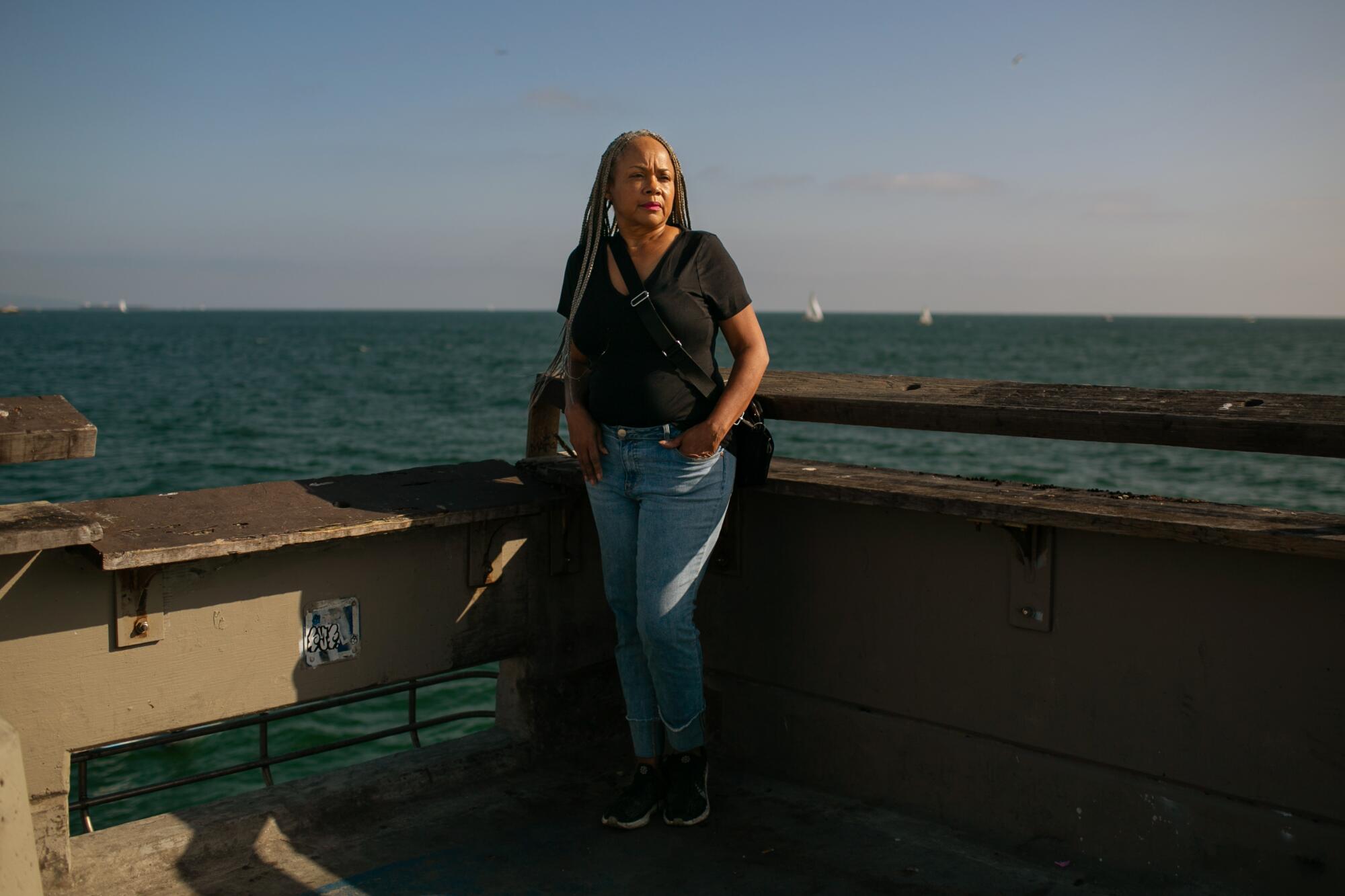
Grief remains a dynamic and ever-changing aspect of Vaughn’s life, but she knows that Chris would want her to thrive and extend help to others, just as he did.
“Chris used to emphasize the importance of listening and taking care of one another,” Vaughn recalled. “He would say, “Really listen and check in on your ‘strong’ people.”
Vaughn holds these words close to her heart as she works tirelessly to prevent the loss of another parent’s young and talented Black child to suicide.
Suicide prevention and crisis counseling resources
If you or someone you know is struggling with suicidal thoughts, seek help from a professional and call 9-8-8. The United States’ first nationwide three-digit mental health crisis hotline 988 will connect callers with trained mental health counselors. Text “HOME” to 741741 in the U.S. and Canada to reach the Crisis Text Line.
More to Read
The biggest entertainment stories
Get our big stories about Hollywood, film, television, music, arts, culture and more right in your inbox as soon as they publish.
You may occasionally receive promotional content from the Los Angeles Times.

